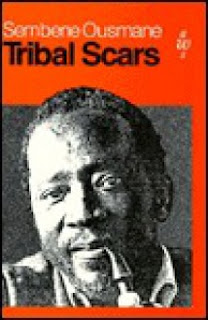‘Her
Three Days’, Sembene Ousmane
This short story by Sembene Ousmane is a condensed
narrative about Noumbe, Mustapha’s wife number three who anxiously prepares as
she awaits the visit by her husband who would be coming to stay for three days,
the significant three days that gives the title of the story. The story reveals
the unfortunate state of polygamy that leaves families in a limbo, feeling
dejected. Using simple narration and dialogue, Ousmane presents the going-ons
of a polygamous home, revealing the pain that comes with it and the disregard
for the welfare of the women.
Ousmane, in this brief narrative, presents the theme of gender
bias and the chauvinistic nature of polygamy. Noumbe waits for her turn for
Mustapha’s visit in vain. Despite her ill-health and the lack of basic provisions
for her and her children, her husband keeps off her place and even skips ‘the
three days’ (Ousmane). Despite her situation, she still struggles to please her
husband, the women compete to outdo each other to earn favor from the man,
disregarding their personal feelings and desires; this shows the glorified
nature of the man’s position, versus the unappreciated women.
The
pain in polygamy is seen in the common struggle that the women go through;
where affection is lost as soon as a new wife comes into the picture. The
children become the woman’s responsibility like in the case of the man, and the
woman is there to serve the pleasure of the man. The pains of polygamy are not
just experienced by the lonely wives, but also the dejected children, like Noumbe’s
children who ask after their missing father. The narrative reveals the inhuman
side of polygamy.
The
author, telling his story through a
third person, only revealing Noumbe’s thoughts and emotions, presents a tone of
nostalgia, anger and sorrow. With nostalgia, Noumbe remembers the loving days
she shared with her husband when she was a new wife. Her anger and sorrow are
revealed when he husband fails to show up. She sulks on her bed and reacts with
anger when Mustapha eventually arrives. The anger, nostalgia and sorrow
emphasize on Ousmane’s overriding theme of the bias in gender and pains of
polygamy.
Ousmane
reveals the character of the protagonist, Noumbe, as an enduring woman,
optimistic about life and industrious. She perseveres the pain of polygamy and
neglect by husband. Despite her illness, she braves herself to take care of her
children, prepare herself for husband and put up a brave face through all the
pain. Her industriousness is seen in her efforts to keep the family together
and take care of her children despite no help from her husband. Even though she
has been disappointed severally by Mustapha, she keeps her hope that he would
eventually show up and stays up waiting.
Mustapha
is chauvinistic and unsympathetic of Noumbe’s situation. He neglects Noumbe but
upon his arrival, he expects an arousing welcome and food served for him and
his friends despite not having left any food. His lack of empathy shows when he
leaves, together with his friends, leaving his sick wife in a sorry state. Mustapha
and his callous attitude towards his wives uphold the chauvinistic nature of
this society and the sad state of polygamy.
Ousmane
presents a typical chauvinistic culture of polygamy and disregard for the
womenfolk. He reveals the struggles that women go through in happy polygamous
marriages.
Works
Cited
Ousmane, Sembene. Societe
Nouvelle Presence Africaine (Ed) (1974) Tribal
Scars and Other Stories.
Portsmouth, New Hampshire: Heineman.

Comments
Post a Comment